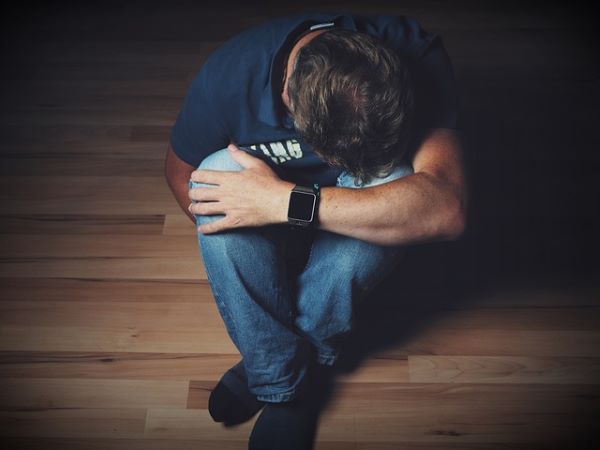Major Depressive Disorder (MDD), commonly known as clinical depression, is one of the most prevalent mental health conditions in India. According to the World Health Organization (WHO), depression affects approximately 56 million people in India, making it a significant public health concern. The National Mental Health Survey of India (2015-16) reported that nearly 5% of the Indian population suffers from depression, with women being more affected than men. Despite its widespread impact, many misconceptions about MDD contribute to stigma and hinder effective treatment. This article aims to debunk 10 common myths about Major Depressive Disorder, providing accurate, research-based information.
10 Common Myths About Major Depressive Disorder
Myth 1: Depression Is Just Sadness
Fact: Depression is more than just feeling sad or down. It is a complex mental health disorder that affects how a person feels, thinks, and handles daily activities. Unlike temporary sadness, depression is persistent and can lead to a variety of emotional and physical problems. The American Psychiatric Association (APA) emphasizes that depression is a medical condition that requires treatment, not just a fleeting emotion. (Source)
Myth 2: Only Weak People Get Depressed
Fact: Depression can affect anyone, regardless of their strength or resilience. It is not a sign of personal weakness but a serious medical condition that can result from a combination of genetic, biological, environmental, and psychological factors. The National Institute of Mental Health (NIMH) states that depression is an illness, not a character flaw. (Source)
Myth 3: Depression Is a Choice
Fact: No one chooses to be depressed. It is a mental health condition that can develop due to various factors, including chemical imbalances in the brain, genetics, and life events. The World Health Organization (WHO) reports that depression is not something that people can “snap out of” through sheer willpower; it requires professional treatment. (Source)
Myth 4: Antidepressants Are the Only Treatment
Fact: While antidepressants can be an effective part of treatment for depression, they are not the only option. Psychotherapy, lifestyle changes, and support from loved ones are also critical components of a comprehensive treatment plan. The Mayo Clinic suggests that a combination of medication and therapy is often the most effective approach to treating depression. (Source)
Myth 5: Depression Is the Same as Grief
Fact: Although grief and depression share some symptoms, they are different experiences. Grief is a natural response to loss, while depression is a medical condition that can occur without any specific cause. According to the American Psychological Association (APA), grief typically comes in waves and is interspersed with positive memories, whereas depression is more persistent and pervasive. (Source)
Myth 6: Depression Is a Lifelong Condition
Fact: Depression is treatable, and many people who experience it can recover fully with the right treatment and support. While some individuals may experience recurrent episodes, others may have only one episode in their lifetime. The National Institute of Mental Health (NIMH) emphasizes that early intervention and proper treatment can lead to recovery and a return to normal functioning. (Source)
Myth 7: People with Depression Are Always Sad
Fact: Depression can manifest in various ways, not just sadness. Some individuals may experience irritability, anger, or a lack of interest in activities they once enjoyed. Physical symptoms like fatigue, changes in appetite, and sleep disturbances are also common. The World Health Organization (WHO) notes that depression can present differently in different people, making it essential to recognize all the potential signs. (Source)
Myth 8: Talking About Depression Makes It Worse
Fact: Talking about depression can be an important part of the healing process. Open communication with a trusted friend, family member, or therapist can provide support and help reduce feelings of isolation. The American Psychiatric Association (APA) advocates for discussing mental health openly, as it can lead to early intervention and treatment. (Source)
Also, read: Now Debunking 10 Common Anxiety Syndrome Myths
Myth 9: Depression Is a Western Problem
Fact: Depression is a global issue, not limited to any specific culture or region. In India, cultural stigma and lack of awareness often prevent people from seeking help, but depression is just as prevalent here as in other parts of the world. The World Health Organization (WHO) reports that depression is a leading cause of disability worldwide, affecting individuals across all countries and cultures. (Source)
Myth 10: You Can Just “Snap Out” of Depression
Fact: Depression is not something that individuals can simply “snap out” of. It is a medical condition that requires treatment, just like any other illness. The National Institute of Mental Health (NIMH) emphasizes that professional help, including therapy and medication, is often necessary to manage and overcome depression.
Frequently Asked Questions (FAQs)
Q1: What are the symptoms of Major Depressive Disorder?
A1: Symptoms of Major Depressive Disorder include persistent sadness, loss of interest in activities, fatigue, changes in appetite, sleep disturbances, and feelings of hopelessness or worthlessness.
Q2: How is Major Depressive Disorder diagnosed?
A2: Major Depressive Disorder is diagnosed by a mental health professional based on the presence of symptoms that persist for at least two weeks and interfere with daily functioning.
Q3: Can depression be prevented?
A3: While there is no sure way to prevent depression, managing stress, maintaining a healthy lifestyle, and seeking early intervention when symptoms arise can help reduce the risk.
Q4: Is depression treatable?
A4: Yes, depression is treatable with a combination of medication, therapy, and lifestyle changes. Many individuals recover fully with the right treatment.
Q5: Can children and adolescents experience depression?
A5: Yes, children and adolescents can experience depression. It is important to recognize the signs early and seek appropriate treatment to support their mental health.





